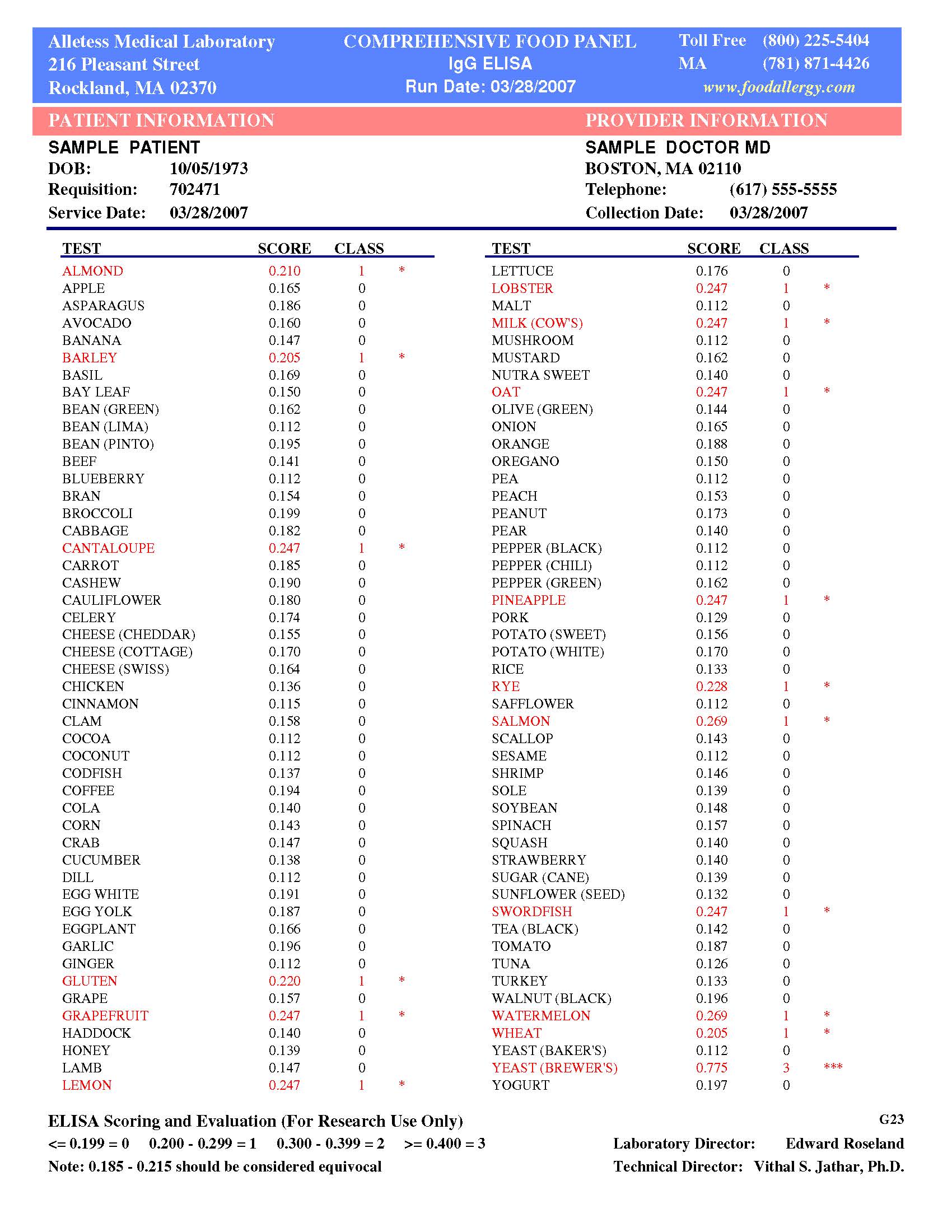Various health conditions may be affected by food and environmental allergies. Symptoms can range from skin conditions, gas and bloating, sinus congestion, migraines and mood changes. Determining your allergies may an important part of establishing overall health.
Click here for a sample profile - Alletess Foods Click here for Sample Candida Albicans ReportImportance of Allergy Testing
Allergic reactions to common foods, such as wheat, milk, citrus, soy, and peanuts, may be mistakenly associated with temporary viral infections or other minor illnesses. However, there may be a relationship between many of your symptoms, such as headaches, fatigue, or runny nose, and the food allergies that may cause them. Gastrointestinal disorders, arthritis, eczema, autoimmune disease, and migraines – just to name a few – may be linked with food allergies.
The Food and Environmentally Allergy Test determines what foods or environmental allergies you may be allergic to for better health and wellness. People of all ages may benefit from allergy testing.
Once a food or environmentally allergen has been identified, your Naturopathic Doctor can discuss a plan of removal and possible re-introduction. Through a well outlined treatment plan, many people find that their food or environmental reactions are manageable.
Types of Allergies
Environmental Allergies: Environmental allergies are most commonly classified into indoor, outdoor, seasonal, and perennial (year-round). Common environmental allergens include mold spores, plant pollens, and decaying plant matter. Temperature and moisture levels also play a role in how an allergen affects the body. Peak allergy seasons include mid-spring and late fall. Most environmental allergens are airborne, causing a wide range of symptoms when they come in contact with mucosal surfaces or the skin. Common surfaces where allergens can cause symptoms include:
Indoor Allergies: It can be more difficult to deal with indoor allergies as they are present year-round and in your living space. Animal dander, dust mites, mold spores, and cockroaches are just a few common indoor allergens that may negatively impact your health. The winter season tends to worsen these allergies due to the lack of air circulation and enclosed indoor space. Poor house construction and water leakage may make your allergens and symptoms worse, such as with mold spores.
Food Allergies: Food allergies are an immunological reaction against proteins found within certain foods. Statistics show that up to 8 percent of the United States population suffers from food sensitivities. Egg, milk, peanut, shellfish, wheat, and fish account for nearly 80 percent of Type I allergies. Type II food allergies occur when environmental allergies cross-react with certain proteins found in foods. For example, tree pollen is often associated with allergies of apples, cherries, peaches, kiwi, carrots, and hazelnut.
Vitalia Allergy Testing & Treatment Center in Vancouver
Allergies may be an underlying cause various symptoms and conditions, from shortness of breath to digestive problems. At Vitalia Healthcare in Vancouver, we are proud to offer Food and Environmentally Allergy Testing to our patients. With our comprehensive testing, we can identify IgE and IgG immune reactions and work with you to reduce the immune effects these allergens may be causing. Call us today at 1-604-566-WELL (9355).


